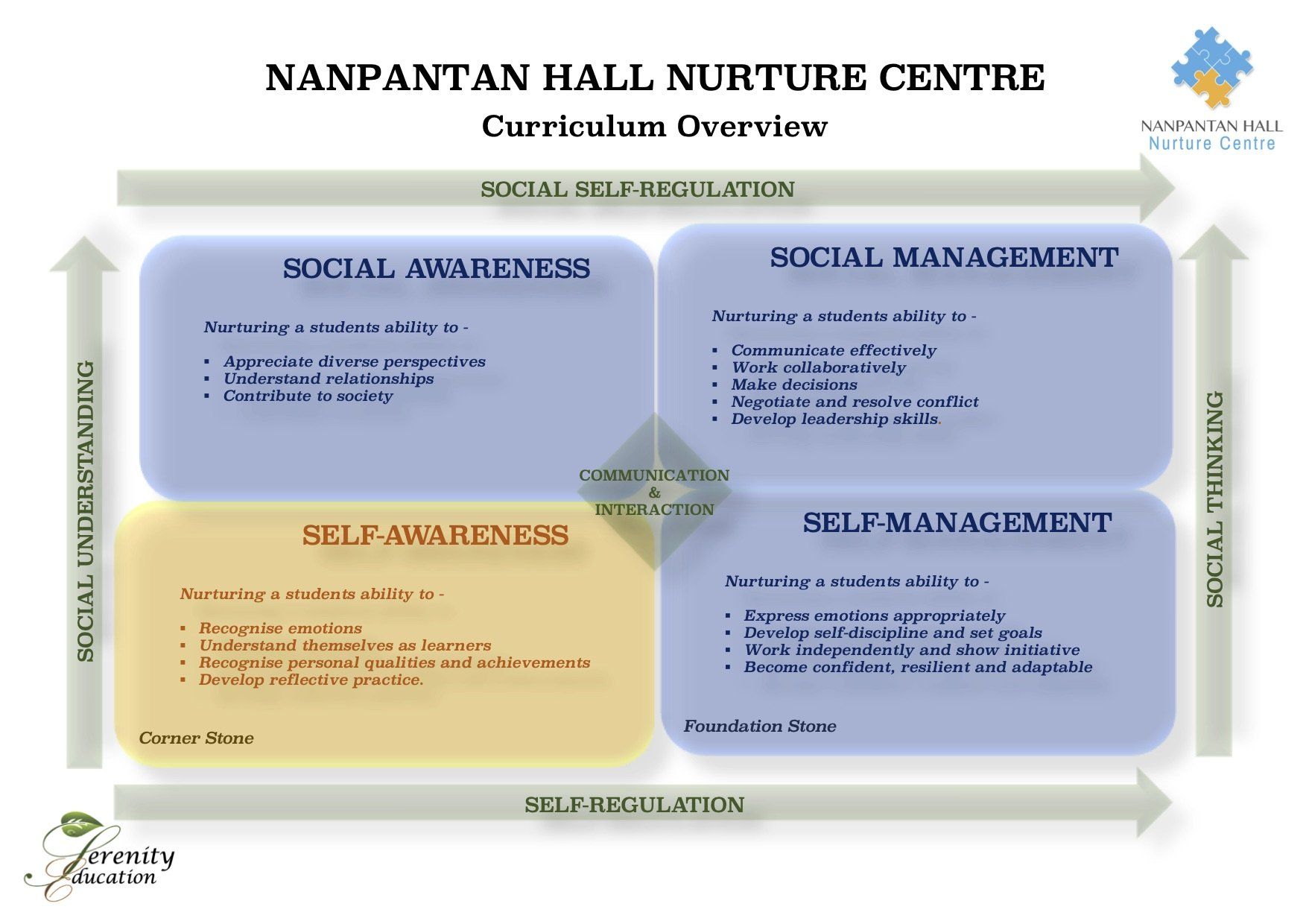Our Curriculum
Proud to do things Differently
The Nurture Centre has a Holistic Curriculum that prioritise the hidden aspects of learning that students with Autism and SEMH difficulties don’t naturally acquire as they learn and play.
This approach compliments the Academic Curriculum but initially priorities Connect over curriculum content.
Our Core Curriculum - Personal Development
Almost all pupils who attend the Nurture Centre do so after experiencing significant difficulties accessing a mainstream curriculum. Therefore, unlike traditional schooling, the Nurture Centre’s core curriculum has a strong focus on the holistic aspects of learning first, in order to lay the foundations for success.
We take this approach as experience and research shows that the Social, Emotional, and Mental Health challenges experienced by the majority of our pupils present a significant barrier to learning. Our core curriculum, which is essentially the Nurture Centre's Personal Development offer, focus on developing pupils self-awareness, self-management, social-awareness and social-management and is summarised below. For our full Personal Development offer, please click here.
Our Curriculum Approach
Pupils at the Nurture Centre follow a personalised curriculum that adapts to an individual’s needs as they develop and grow in confidence. As part of our holistic approach these personalised curricular are summarised under three main approches.
Whole School Long Term Curriculum Plan
The curriculum at the Nurture Centre is a broad and balanced, knowledge-rich primary curriculum. It's content is delivered through a range of subject-driven thematic projects that are linked to the National Curriculum, and cover the full range of subject requirements.
The Nurture Centre uses 'Cornerstones Maestro' t deliver the National Curriculum in an engaging way that is sequenced, progressive and cohesive.
The long term plan sets out the Nurture Centre's intended coverage which is then personalised to individual needs. The curriculum is organised into cycle A & B to support and accommodate mixed age groups. - Please click on the image to view the Long Term Plan in more detail.
Subject Sequencing and Progression of Skill & Knowledge
Each project is linked to a program of study and broken down into 'chunks' that form a progressive framework that runs from Year 1 -Year 6. The framework includes the knowledge and skills that our pupils need to know and be able to do in order to make progress through the curriculum.
In addition to the Cornerstone Maestro Curriculum, the Nurture Centre also uses a number of recognised schemes of work to support teacher workload including 'White Rose' for Maths and 'Jigsaw' for PSHE/RSE.
The Teaching of Phonics
The Nurture Centre follows the 'Twinkl Phonics' scheme which is based on the Department for Educations 'Letters and Sounds'.
Twinkl Phonics is a DfE validated full systematic, synthetic phonics programme that contains everything needed to deliver phonics teaching to our pupils from the very beginning of learning to read and write to full fluency. It delivers GPCs in a clear and rigorous way so that skills are built progressively over time, ensuring that children have a secure base from which to develop.
Implementation
Nationally all pupil are introduced to phonics at an early stage of schooling and usually undertake a phonics screening test at the end of their Year 1. At Nanpantan Hall Nurture Centre we recognise that the early school years for many of our pupils have been disruptive or challenging. This means that some pupils arrive at the Nurture Centre not having a fully developed understanding of phonics and in some cases have had a traumatic experience of being taught phonics.
True to our nurturing approach we aim to met pupils where they are on their journey to reading fluency. When a pupils is not emotionally ready to fully access a synthetic phonics programme we work with them to build pre-reading skills, confidence and resilience. As soon as a pupil is ready to start phonics they take a baseline assessment and start the programme from the point they are confident. Phonics sessions can happen daily either during reading sessions or English lessons.










